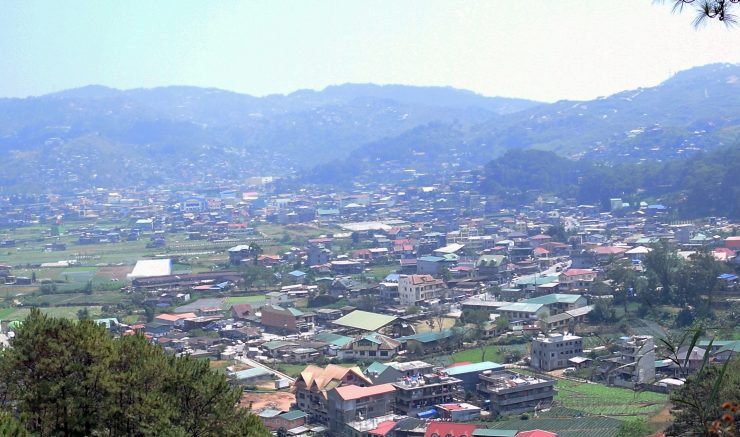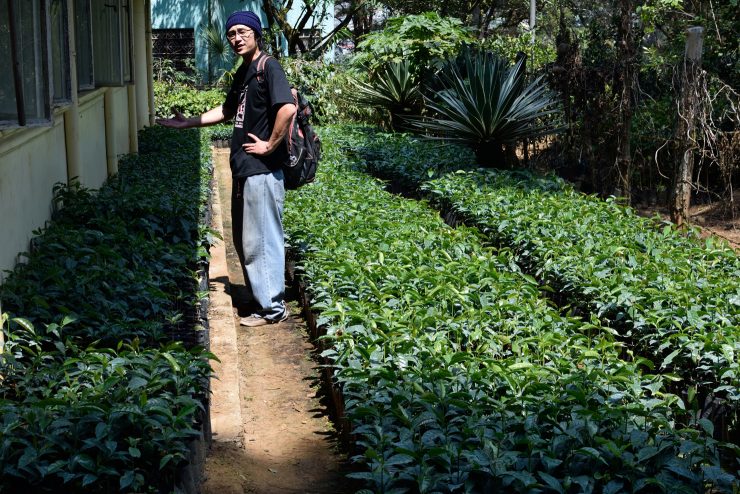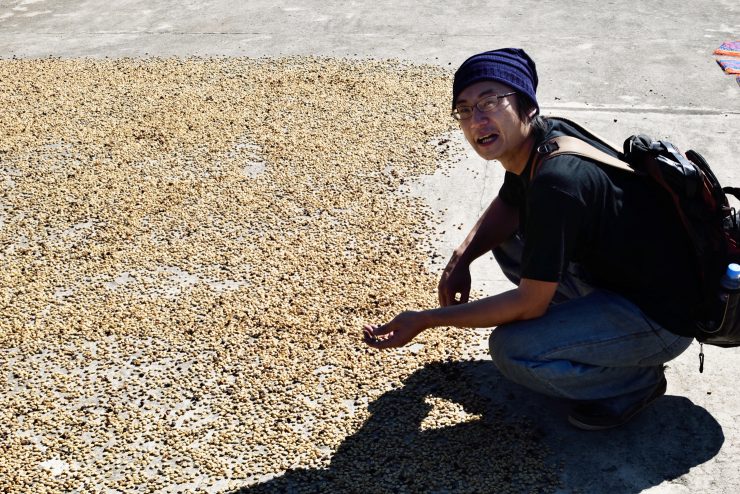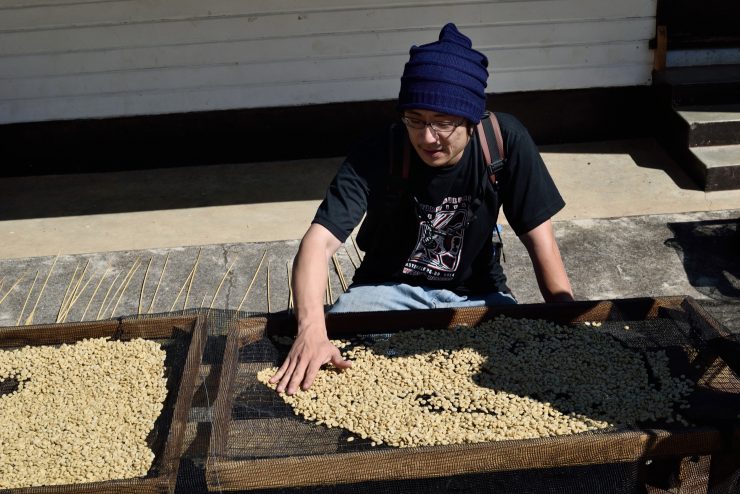Boarding the bus at Cubao Station in Quezon City, I wedge myself amid throngs of domestic tourists attempting to vacate Manila before the Papal entourage shut down half the city. After such a crush, an economy class bus seat was positively spacious; I sleep hard and awake at sunrise just outside Baguio.
When I first arrived at La Trinidad via Baguio, I couldn’t help but be immediately impressed by the houses perched on the side of mountains, residential promontories jutting out over lakes of idling jeepneys. Leaving the bustle of Baguio, diesel fog lifted, affording a view of the wider valley that is home to La Trinidad.
While Baguio is known as a mountain retreat to locals and foreigners both, lesser-known La Trinidad is a center of agriculture for the Cordilleras. The two cities are a stone’s throw from one another, but very distinct. People flock to the two cities to stock up on items that are hard to find in the mountains; Baguio for consumer goods or a celebratory dinner, and La Trinidad for farm supplies. The two cities are also home to a number of universities, not the least of which is Benguet State University at La Trinidad.
BSU was founded in 1916, and is an important center for agricultural research in Northern Luzon. Yamamoto Hirofumi (or Hiro), has lived on the campus of Benguet State University for the last three years. He studies coffee propagation, and he has become so involved with coffee here that even the DTI (Department of Trade and Industry) and DA (Department of Agriculture) have enlisted him to help with trainings ranging from post-harvest processing to pruning and rejuvenation.
Hiro’s passion for coffee goes back quite some time. After his initial studies in philosophy, where he wrote about the development of coffee culture in Japan, he took up work at an advertising agency. Throughout his tenure there, he knew that he wanted to do something he was more passionate about: taking a part time job at a small coffee company, he knew that something was coffee.
His boss at Ko-hi Seikatsukan, Yoshiyuki Takahashi, became his mentor, and Hiro became fully invested in coffee. He got experience roasting, cupping, and rotating coffee. Soon, he wanted to get more involved in the business, and ended up taking a job at a green coffee retailer. At US Foods Company, he was able to handle green coffee every day and though this was valuable experience, Hiro decided to study as much as he could about coffee on his own. He read all the books and articles he could find on coffee cultivation, spurred on by Yoshiaki Kawashima of Mi Cafeto and his book, Coffee Hunter. Eventually, he decided to further his education by attending university in a producing country. Hearing of increasing interest in specialty coffee in the Philippines, he came to BSU.
Hiro keeps a very busy schedule. In between classes and coursework, he gives farmer trainings with DTI, hosts cuppings with different branches of the DA, and spends many weekends traveling with Cordillera Green Network to help facilitate the workshops they give the communities they work with. Staying in the same dorm as Hiro, I witnessed him coming home very late from meetings, sample roasting, and cuppings, only to get up early for classes the next morning.
We picked each other’s brains on a variety of topics, but our discussions always came back to our shared idea of the ideal situation: being able to work at origin, with farmers, to enhance quality and understanding. This is Hiro’s main drive, and something to which he has dedicated the last three years of his life. Judging from the various articles on him in local media, he is gaining considerable local notoriety.
One real pull of studying coffee is the great depth of knowledge that exists just below the surface. Constant reading and listening occupies the time of many coffee professionals, who can never delve deep enough to slake their thirst for knowledge. Hiro belongs to this class of people, but he is also an enabler, inducting people across the Philippine coffee industry into a new discipline. Though he will graduate soon, Hiro’s influence on the Philippine coffee industry in the Cordilleras will continue to be felt long after his departure.
Evan Gilman is an American coffee professional based in Indonesia. Read more Evan Gilman on Sprudge.
The post The Enabler: Yamamoto Hirofumi Is Changing Coffee In The Philippines appeared first on Sprudge.





